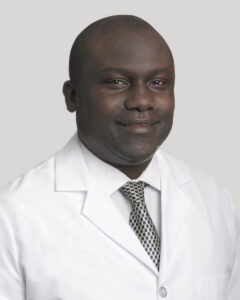
I have had malaria several times; I am from Africa. I have also practiced medicine in Africa and treated many patients with malaria and other mosquito-borne illnesses. It comes with the territory, quite literally. You don’t have to live in or travel to Africa or South America, however, to fall victim to illnesses such as Keystone, dengue fever, chikungunya, Zika and West Nile virus.
In some parts of the southernmost United States and the Gulf Coast, mosquitos are a year- round nuisance. Summertime is especially favorable to the little pests, and they can spread viral, bacterial, or parasitic diseases to anyone, young and old, through their bites.
round nuisance. Summertime is especially favorable to the little pests, and they can spread viral, bacterial, or parasitic diseases to anyone, young and old, through their bites.
Although a locally acquired case of malaria in Texas and four in Florida are currently making the news, there is little to be alarmed about. The chance of being bitten by a mosquito carrying malaria is infinitesimal.
However, mosquito-borne diseases are blood-to-blood transferred, so although they are not contagious, a mosquito can bite a person who is carrying a disease and then bite a different person and transfer it to them. Some of those diseases can be deadly.
Though malaria is the most recent virus to gain media attention, many other mosquito-borne all can cause symptoms such as:
- High fever
- Headache
- Joint and muscle pain
- Vomiting
- Diarrhea
- Yellowing of the skin and whites of the eyes (jaundice)
If you experience these symptoms, especially if they are getting worse rather than better, see your doctor right away. You don’t want to risk any virus getting out of control and landing you in the hospital. Malaria, along with other mosquito-borne illnesses can cause kidney failure, severe respiratory issues and begin to shut down your organs.
These mosquito-borne viruses are especially dangerous to people older than 65. Without vaccines to prevent these diseases, the best protection is to avoid getting bitten in the first place.
People most at risk for mosquito-borne viruses live in tropical or rural areas, including areas with heavy rainfall, near lakes, streams, ponds or marshes. Also at risk: Anyone who travels to Mexico, Puerto Rico, Central America, South America, the Caribbean, West and Central Africa, and certain Pacific Islands where these diseases occur more frequently
Mosquitos can be kept at bay by:
- Installing and maintaining screens on windows and doors.
- Using a mosquito net over your bed while you sleep if you have open windows in your house.
- Wearing long-sleeved shirts, hats, and pants when going outdoors.
- Using an Environmental Protection Agency (EPA)-registered insect repellant when outside (be sure to follow the directions on the can or bottle).
You can also help control the mosquito population in and around your home. Standing, stagnant water is prime breeding ground for mosquitos, so empty sources of standing water around your yard and house, including in old tires, shoes, gardening equipment and flower pots. Change the water in bird baths, pet water bowls and children’s pools frequently. Eliminate or dry out puddles that form around your yard and house.
Being aware of your health and your surroundings is the best way to avoid getting very sick or helping spread mosquito-borne illnesses. Call your doctor if you are not feeling well, or have recently traveled to an area that has been affected by these diseases. Always see your doctor at least once a year for a complete physical exam to keep you healthy.
